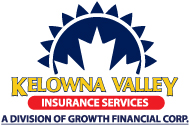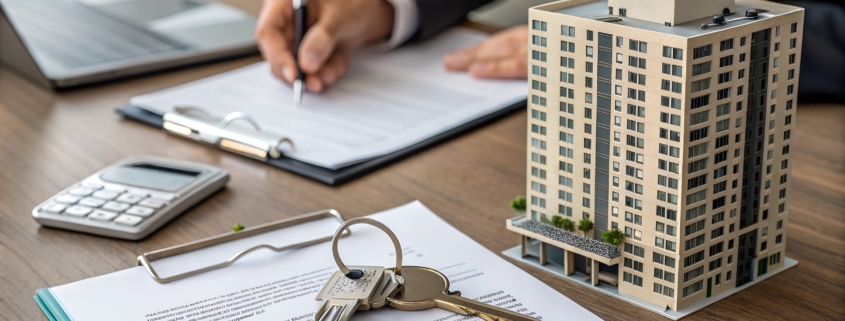Strata Insurance in BC: A Complete Guide for Strata Owners
Strata Insurance in BC: Protecting Your Home and Shared Property with Comprehensive Coverage
Strata living in BC – it’s so much more than just a shared roof. Across British Columbia, over 1.5 million people live in strata communities — from cozy duplexes and townhomes to high-rise condominiums and bare land stratas. Strata living offers many benefits: shared maintenance, community amenities, and often a lower-maintenance lifestyle.
But it also brings a unique set of responsibilities — especially when it comes to insurance. Owning a strata property means you’re protecting not just your own home but also your share of the entire complex.
We work with both strata corporations and individual owners to ensure their coverage is complete, cost-effective, and tailored to their unique property. Whether you own a single unit or help manage a multi-building strata, knowing how strata insurance works is essential to safeguarding your investment.
Key Takeaways
- Strata corporations must insure common property at full replacement value.
- Individual owners still need their condo (unit) policy for belongings, upgrades, liability, and deductible assessments.
- Deductibles on building policies can be substantial — owners should have coverage for these costs.
- Strata insurance needs vary based on property type, size, and bylaws.
How It Works: Strata Insurance in BC
When you buy into a strata property, you own your unit and a proportionate share of the common property — things like the roof, lobby, landscaping, and other shared spaces.
Under BC’s Strata Property Act, this shared ownership means insurance is split into two main areas:
- Strata Corporation Insurance – Covers the building(s), common property, and common assets.
- Individual Unit Owner Insurance – Covers your personal property, improvements, liability, and potential cost-sharing for building policy deductibles.
What the Strata Corporation Covers
Legally, the full replacement cost of common property gets insured by the strata corporation. This typically includes:
- The building(s) and structures identified on the strata plan
- Common areas like hallways, elevators, lobbies, gyms, and parking facilities
- Original fixtures in each unit (as defined in the bylaws)
- Upon request, common assets such as shared maintenance equipment and furniture can be included.
- Commercial General Liability (CGL) for injury or property damage claims involving common property
These insurance costs are paid from strata fees and are reviewed annually. Responsible strata councils commission updated insurance appraisals regularly to ensure coverage matches current rebuilding costs.
Your Personal Unit Policy – What It Covers
A common misconception among strata owners is that the strata corporation’s insurance covers everything. In reality, it does not protect your personal possessions or improvements.
Your unit policy should cover:
- Furniture, clothing, and electronics and portable appliances like washer, dryer and fridge for example
- Improvements and betterments made to your unit
- Your personal liability if you cause damage to another unit or the common property
- Deductible assessment coverage (for your share of building policy deductibles)
- Additional living expenses if your unit becomes uninhabitable due to a covered loss
Having this coverage ensures you’re not left paying out-of-pocket for damage, repairs, or legal costs.
Small Stratas Still Have Big Responsibilities
From a modest duplex to a three-unit townhouse strata, the corporation is legally required to insure the common property. Smaller stratas may operate informally, but they must still meet BC’s Strata Property Act requirements.
Bare land stratas can be misleading — the homes may appear like single-family dwellings, but the community often shares private roads, utilities, or green spaces. These shared elements still require strata corporation coverage, while each homeowner insures their dwelling separately.
Why Deductible Coverage Is Critical
Deductibles for strata building insurance are often much higher than homeowners expect — sometimes ranging from $25,000 to $100,000 or more. If damage originates from your unit, the strata corporation may require you to pay the deductible, even if the incident wasn’t intentional.
Without deductible assessment coverage in your personal condo policy, this expense would come directly from your savings.
Extra Coverages to Consider
Depending on location and risk factors, your strata corporation and your personal policy may benefit from additional coverage:
- Earthquake insurance – Vital in parts of BC prone to seismic activity, though it often comes with high deductibles.
- Overland flood insurance – Protects against water damage from heavy rain, snowmelt, or rising rivers/lakes.
- Sewer backup insurance – Covers damage from wastewater or sewage backing up into the building.
Best Practices for Strata Councils
- Update insurance appraisals every three years (and review coverage annually)
- Keep owners informed about changes in the building’s insurance policy or deductibles
- Create and maintain a preventative maintenance plan to reduce claims
- Consider bylaws requiring certain owner coverages, such as earthquake or deductible coverage
Best Practices for Strata Owners
- Request a copy of the building’s insurance declaration each year
- Keep a detailed inventory of your personal property and unit upgrades
- Ensure your unit policy includes deductible assessment coverage
- If you rent out your unit, carry landlord’s insurance and require tenants to have renters’ insurance
FAQ – Strata Insurance in BC
Q: Do I still need condo insurance if my strata has a building policy?
A: Yes. The building policy covers common property and original fixtures, not your personal belongings, upgrades, or personal liability.
Q: What happens if a loss starts in my unit but damages the building?
A: The strata corporation may require you to pay the building policy deductible, which could be tens of thousands of dollars.
Q: How do I know if I have enough coverage?
A: Review both your strata’s building policy and your personal policy with a licensed insurance broker to ensure there are no gaps.
Q: Are earthquakes and floods covered automatically?
A: No. These are often optional coverages with separate deductibles. Check your policy or speak with your broker to add them.
Work with an Insurance Broker Who Understands Strata
Strata insurance can be complex, but with the right guidance, you can make sure every risk is covered. We work with multiple insurers to find the most competitive rates and comprehensive coverage for both strata corporations and individual unit owners.
Whether you sit on a strata council or own a single condo unit, we can:
- Review your current policies for gaps
- Explain your coverage in plain language
- Provide quotes from multiple providers
- Offer fast, friendly, and local service
Protect Your Strata!
Your strata property is more than just a place to live — it’s a shared investment in your home and community. Protect it with the right strata insurance for both your building and your personal unit.
Contact us today or visit our convenient Orchard Plaza (two doors up from Winners) or Glen Park Village in Glenmore (behind the McDonalds restaurant) locations to speak with a licensed broker.



